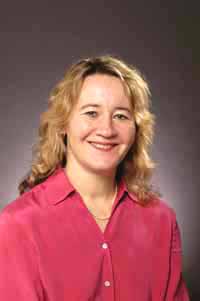 MICHAEL R. BLOOMBERG is the founder of Bloomberg LP, Philanthropist, UN Secretary-General’s Special Envoy for Cities and Climate Change, World Health Organization Global Ambassador for Noncommunicable Diseases, and three-term mayor of New York City.
MICHAEL R. BLOOMBERG is the founder of Bloomberg LP, Philanthropist, UN Secretary-General’s Special Envoy for Cities and Climate Change, World Health Organization Global Ambassador for Noncommunicable Diseases, and three-term mayor of New York City.
He is an entrepreneur and philanthropist who served as mayor of New York City from 2002-2013 after leading the company he started in 1981 for 20 years. Since leaving City Hall, he has resumed leadership of Bloomberg LP.
Bloomberg was elected mayor less than two months after the terrorist attacks of September 11, 2001. Under his leadership, the city rebounded faster and stronger than expected on issues ranging from education to health to economic development.
A lifelong philanthropist, Bloomberg founded Bloomberg Philanthropies, which focuses on five main areas: public health, education, the environment, the arts, and government innovation. He also leads a number of bi-partisan coalitions on urgent issues, including climate change, illegal guns, immigration reform, and infrastructure investment.
Bloomberg graduated from Johns Hopkins University and Harvard Business School.
Held by Carol Greider
 CAROL GREIDER, PhD received her bachelor’s degree from the University of California at Santa Barbara in 1983 and a PhD in 1987 from the University of California at Berkeley. In 1984, working together with Dr. Elizabeth Blackburn, she discovered telomerase, an enzyme that maintains telomeres, or chromosome ends. In 1988, Dr. Greider went to Cold Spring Harbor Laboratory where, as an independent Cold Spring Harbor Fellow, she cloned and characterized the RNA component of telomerase. In 1990, Dr. Greider was appointed as an assistant investigator at Cold Spring Harbor Laboratory, followed later by appointment to Investigator in 1994. She expanded the focus of her telomere research to include the role of telomere length in cellular senescence, cell death and in cancer. In 1997, Dr. Greider moved her laboratory to the Department of Molecular Biology and Genetics at The Johns Hopkins University School of Medicine. In 2003 she was appointed as the Daniel Nathans Professor and Director of the Department of Molecular Biology and Genetics. At Johns Hopkins University, Dr. Greider’s group continued to study the biochemistry of telomerase and determined the secondary structure of the human telomerase RNA. In addition she characterized the loss of telomere function in mice, which allowed an understanding of humans short telomere diseases such as bone marrow and other stem cell failure diseases. Dr. Greider shared the Nobel Prize in Physiology or Medicine in 2009 with Drs. Elizabeth Blackburn and Jack Szostak for their work on telomeres and telomerase. Dr. Greider currently directs a group of eight scientists studying both the role of short telomeres in age-related disease and cancer as well as the regulatory mechanism that maintain telomere length.
CAROL GREIDER, PhD received her bachelor’s degree from the University of California at Santa Barbara in 1983 and a PhD in 1987 from the University of California at Berkeley. In 1984, working together with Dr. Elizabeth Blackburn, she discovered telomerase, an enzyme that maintains telomeres, or chromosome ends. In 1988, Dr. Greider went to Cold Spring Harbor Laboratory where, as an independent Cold Spring Harbor Fellow, she cloned and characterized the RNA component of telomerase. In 1990, Dr. Greider was appointed as an assistant investigator at Cold Spring Harbor Laboratory, followed later by appointment to Investigator in 1994. She expanded the focus of her telomere research to include the role of telomere length in cellular senescence, cell death and in cancer. In 1997, Dr. Greider moved her laboratory to the Department of Molecular Biology and Genetics at The Johns Hopkins University School of Medicine. In 2003 she was appointed as the Daniel Nathans Professor and Director of the Department of Molecular Biology and Genetics. At Johns Hopkins University, Dr. Greider’s group continued to study the biochemistry of telomerase and determined the secondary structure of the human telomerase RNA. In addition she characterized the loss of telomere function in mice, which allowed an understanding of humans short telomere diseases such as bone marrow and other stem cell failure diseases. Dr. Greider shared the Nobel Prize in Physiology or Medicine in 2009 with Drs. Elizabeth Blackburn and Jack Szostak for their work on telomeres and telomerase. Dr. Greider currently directs a group of eight scientists studying both the role of short telomeres in age-related disease and cancer as well as the regulatory mechanism that maintain telomere length.
 MICHAEL R. BLOOMBERG is the founder of Bloomberg LP, Philanthropist, UN Secretary-General’s Special Envoy for Cities and Climate Change, World Health Organization Global Ambassador for Noncommunicable Diseases, and three-term mayor of New York City.
MICHAEL R. BLOOMBERG is the founder of Bloomberg LP, Philanthropist, UN Secretary-General’s Special Envoy for Cities and Climate Change, World Health Organization Global Ambassador for Noncommunicable Diseases, and three-term mayor of New York City.